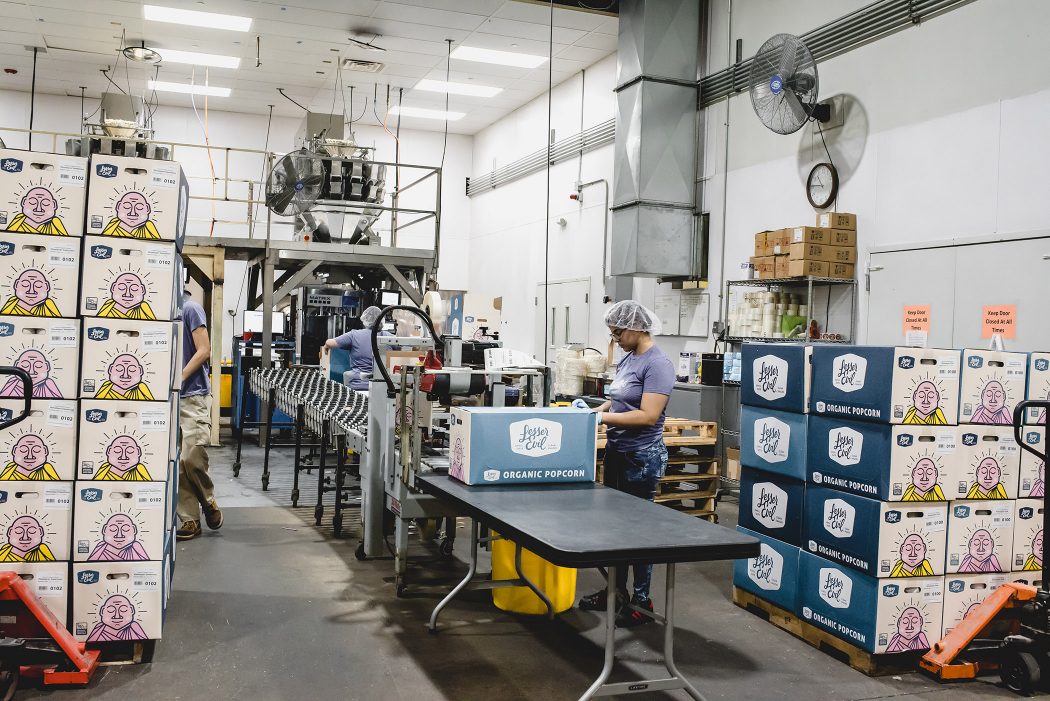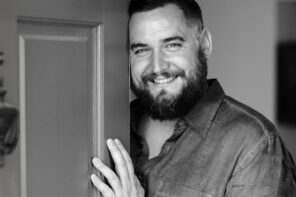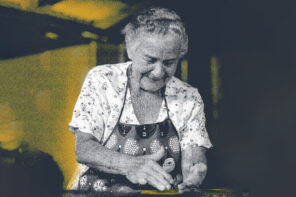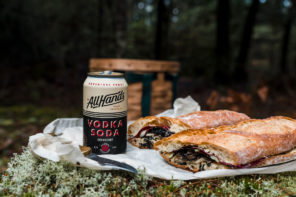A Conversation with LesserEvil CEO Charles Coristine
In what sounds very much like something Royal Tannenbaum might have gotten mixed up in, Gene Hackman got involved in starting a healthy snack food company at the height of the Atkins craze with his enterprising old friend Jim Cramer (host of CNBC’s “Mad Money”). The snacks started as a better-for-you brand in 2005 in that way, but as the Atkins bubble burst so too did Royal and Jim’s snack food start-up.
Fast forward a few years and the brand languishes a bit, falling through the cracks in the snack food ecosystem, with bags of popcorn and Krinkle Sticks ending up not reaching cupboards and snack bowls the way they once had, and Gene and Jim got out.
Charles Coristine, a recovering bond trader who grew up in Canada but lived in New York, bought the company a few years later, seeing in it some potential for being more than LesserEvil, and actually, maybe more accurately “more good.” But “more better snacks” probably didn’t have such a good ring to it, so it’s a good thing they stuck with LesserEvil. Point is, the snacks became much improved under Charles’ leadership and the company did things like develop product lines and flavors and built a factory in which to produce them in Danbury, CT that might have a few things in common with Willie Wonka’s Chocolate Factory.
We asked Charles about experimenting with fun flavors, finding your own guru, his journey from bond trader to snack food maker and how to be more good.
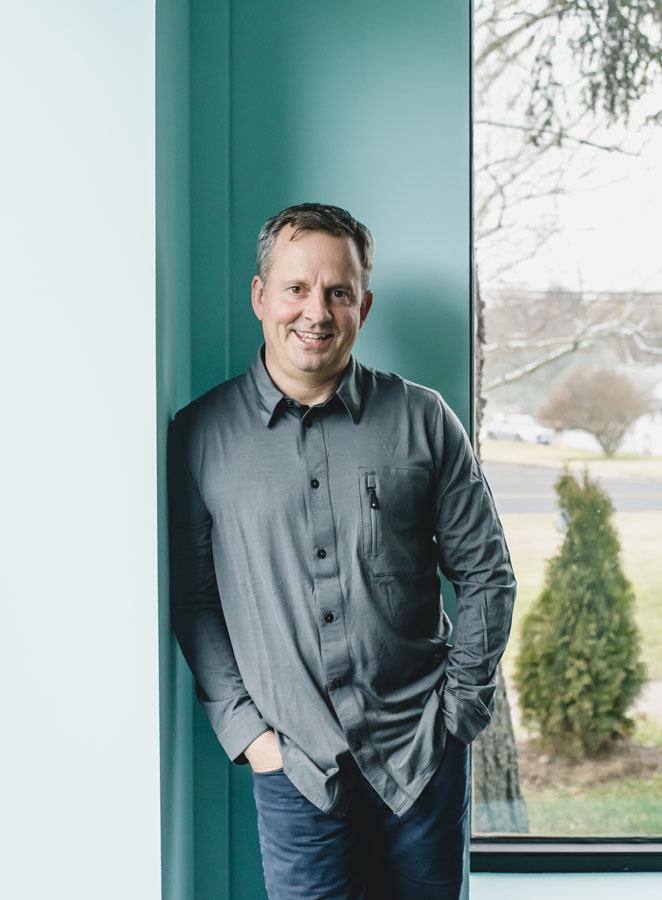
Where were you in your life when LesserEvil came into the picture?
Charles: It was when I wasn’t having fun in finance anymore. I was kind of burnt out. I was a bond trader. Just, working long hours. A lot of clients entertaining. A lot of risks. At some point my body, I was shaking like a wet leaf so it was time to make a change.
What was your journey to learning about your own mind-body connection?
Charles: Trading bonds is a young man’s game. As I suffered from more stress, as I hit my mid-thirties, that’s when I started meditating and I became a vegetarian and all that other good stuff. That really brought me to the whole-food industry. Just the holistic way of life.
How did that lead you to LesserEvil?
Charles: I met them through a friend of a friend’s father. LesserEvil was originally founded by Gene Hackman and Jim Cramer back at the end of 2005. Betsy Hackman was really big into the Atkins diet, and she thought she would do this less sweet popcorn. They owned the business for about five years and they spent a lot of money on it. They invested in the brand and in branding itself. After a while, it just grew too expensive and they lost faith in the direction of the company.
So I was at over the friend of a friend’s house. He had these packages, these LesserEvil packages at his house—the popcorn and the Krinkle Sticks. And I remember saying, “Oh, that’s interesting.” And he was telling me how he bought the brand from Gene Hackman and Jim Cramer, but he really didn’t have the resources to take it further, and he wasn’t sure that he was going to continue working on it. So that’s what planted the seed, and I started talking to him a little but, and he definitely wanted out. So I was able to acquire it fairly inexpensively. If it would have been a big price tag, I probably would have shied away, because I knew that I didn’t really know anything about this category, but it was just cheap enough to make me make a crazy decision.
So I was still a pretty proud guy, and I just announced to the whole world that I was leaving Wall Street to start my own business. I wasn’t going to tuck my tail at that point, I was too proud. So I made the fateful decision to open up our own manufacturing center, which was probably a pretty stupid decision at the time, but it actually ended up paying dividends after we got into it. And realized that, by owning our own manufacturing, we could play in a different world where we use different ingredients than is typical.
I just announced to the whole world that I was leaving Wall Street to start my own business.
And then you took a big pivot in more towards a more healthy snack?
Charles: LesserEvil now is nothing like it used to be. The products that they used to have were just basically better-for-you products. Better for you than Lay’s Potato Chips, but they weren’t really good for you, you know? You’re talking a big puffed potato snack, and popcorn with less sugar.
So basically, I buy this company, I find out that it’s going to hell in a handbasket, which I should have known, given what I paid for it. And then my co-packers decide that they’re going to raise their co-packing fees. So I had just quit my job. I told everyone that I was going to be in food, and this is really exciting, and I couldn’t tuck my tail between my legs. So I said, “Okay, I’m going to open up my own snack food manufacturing facility.” Because I’ve got the right side of the equation that is not going to allow me to survive.
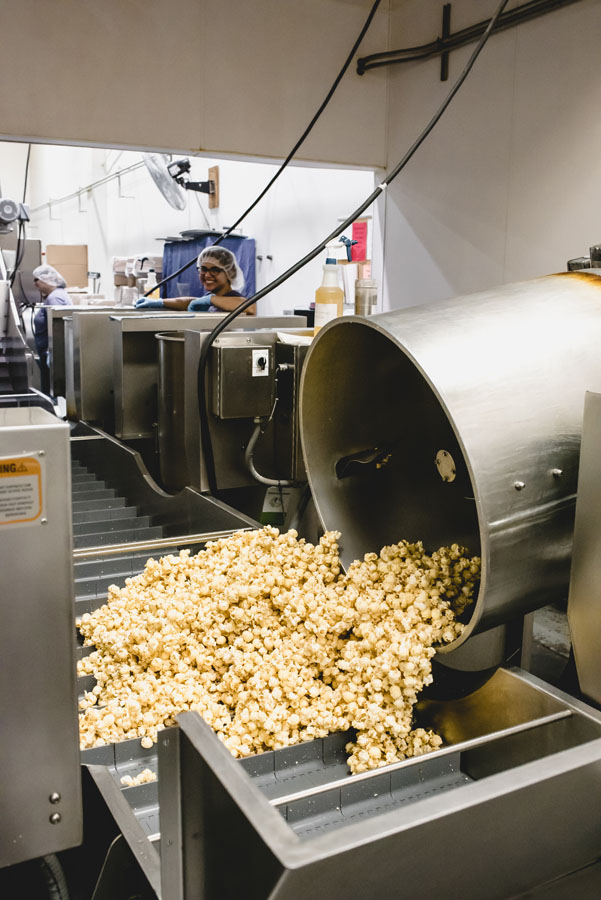
What was the vision of the factory?
Charles: The factory was initially a financial decision, but quickly became a little bit of a playground, because at first, we didn’t have enough capacity. We bought all this equipment but we didn’t have a ton of products. We had to innovate to give us something to do on this equipment. I think the first thing we did, we launched a line of organic popcorn, called Chia Pop. It was pretty tricked up. It was organic popcorn with seasoning, and milled chia on top—because those days chia was pretty hot. So it’s like, “Ah, we’ll mess around with chia. Maybe a chia popcorn would be kind of cool.”
It was a pretty trivial attempt. But actually, people liked it. People bought it. But what it did was, we realized that popcorn was a pretty explosive space, and we realized there was no one really in organic popcorn.
Then I went on a yoga retreat to this place called Kripalu. It’s in Lenox, Massachusetts. And that’s when I got the light bulb moment, which was the whole coconut oil thing. Dowsing the popcorn in extra virgin organic coconut oil, and Himalayan salt. This guy John Bagnulo, he’s a holistic nutritionist from Maine, was giving a nutrition seminar. It was a five-day nutrition seminar, and he’s the one that said, “Dude, you’re making popcorn. You got to give this extra virgin coconut oil a spin on popcorn.” And the whole Buddha Bowl idea was born. And that’s really when we started to see some real traction.
Coconut oil wasn’t off my radar. I just, I’d never even thought about it. Like, putting coconut oil on popcorn, that’s just… It made sense. I was like, “Duh.” And then we started messing around with a whole bunch of other, better for you, unprocessed oils.
Were there flavors that, or approaches that you got the team, and you thought were really going to work out, and then didn’t when you actually created them?
Charles: Yeah, pretty much everything we did for five years, except for a couple of years. I mean, we’ve tried everything from wasabi to jalapeño. I’ve failed many more times than I’ve succeeded in flavors.

The limited-edition summertime flavors have been a hit around here. Grapefruit and popcorn isn’t the first flavor combination you think of. Where do these ideas come from?
Charles: Yeah, that was a whimsical stretch to be brutally honest. I mean, sometimes I come up with this shit, and I don’t know where I come up with it. I didn’t know it was going to work. I presented that to Whole Foods, saying, “Hey, what do you think about this idea?” And they were like, “Yeah, that sounds good.” And I was like, “Well, how the fuck am I going execute on that?” But it actually worked. Watermelon was like, I had no idea, but you use the right oils, and the right salt, a lot of shit’s going to taste good on popcorn. It’s a nice medium to work with.
And they are good at a pool party. So we’ve got out snacks for the pool party. What music should we put on?
Charles: You’re going to laugh at me on this one. I’m going to say, I’m probably putting on John Mayer. John Mayer has gotten a lot better as a guitarist, if you haven’t seen him recently. I think the Dead and Company has had a huge effect on him as a musician, but what I love about him is, like it’s music that both my 11-year-old daughter, my 14-year-old son, my wife, and I all like. And that’s important these days.
LesserEvil, as it is now, is inspired by gurus, with the gurus on the bags and the encouragement to “be your own guru.“ Who were some of your gurus?
Charles: When I first started meditating, the first person I started listening to was probably Ram Dass. I love just the fact that he was so self-effacing, and that he was so honest, and he talked about all his neurosis, and all that other shit. He was the first person that kind of like, “Wow. This guy’s pretty fucked up.” And he also told a pretty interesting story. I had read about Timothy Leary, and all that stuff, in these old Playboy Interview books that my grandmother had when I was a teenager. Timothy Leary was pretty intriguing. And then he started talking about Maharaji, and I started reading books about Maharaji, and then I loved it. And I read some stuff on Kannante Amma, and Ramana Maharshi, and Nithyananda.
So I have all these different Indian gurus that I borrow little things from. Different people inspire me in different ways. I think the whole premise for LesserEvil—when wellness guides your spirit, you are your own guru—really comes from all that stuff. That you’ll find what speaks to you, to your own inner guru, and the actual guru’s inside. Just, some people speak to it better than others, and you just, you take that wisdom and it and you just know what feels right.
When wellness guides your spirit, you are your own guru.
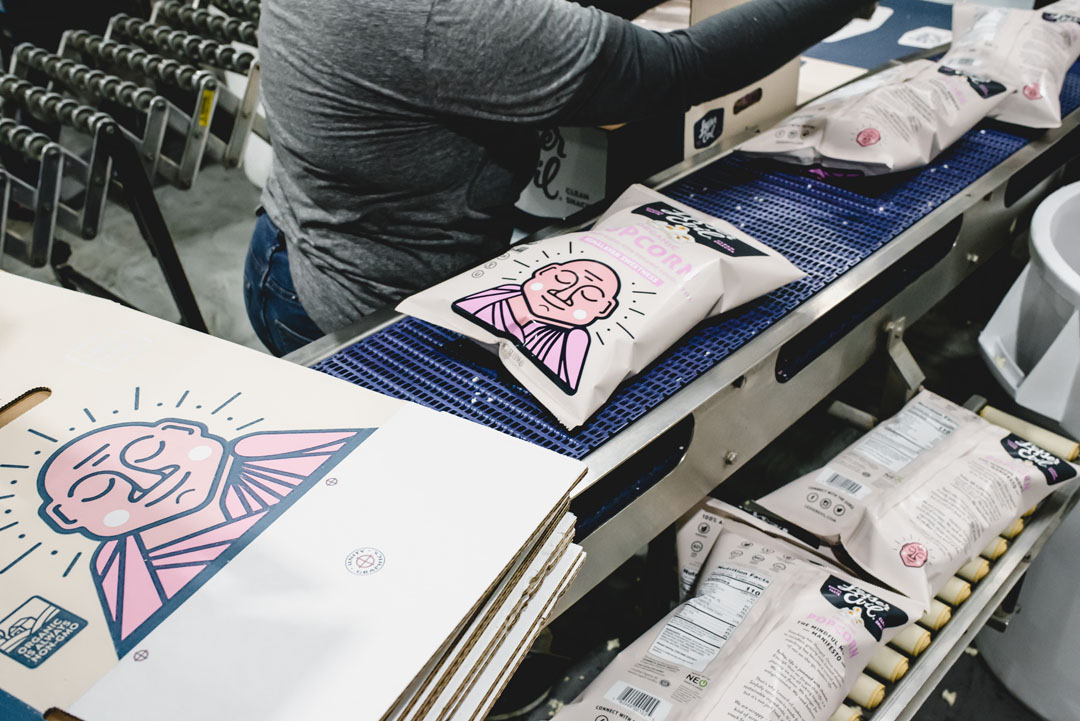
What’s one thing that you learned from your finance career that was the most helpful thing you brought over from that experience while running LesserEvil?
Charles: So being a bond trader, I would lose money a lot. And the thing that allows you to survive in finance, or in particularly trading, is the ability to admit when you’re wrong fairly quickly, because if you’re proud, and you hold onto positions too long, typically you don’t last very long. So you’ve got to be pretty nimble. And what that allowed me to do is, when I first came on board, was to see clearly where I was making mistakes, clearly what products weren’t working. I was really good about discontinuing things, admitting mistakes, and just kept pivoting until I found what worked.
Is there something from that life that you thought you knew that you had to unlearn going into this new business?
Charles: I’m a completely different person than I was back then. Yeah, I lived in my ego continuously, and I still do, and to some degree. But I’m much more on a journey inside. So everything I’m doing is kind of an exploration, whereas in my previous life, I was very reactive. I just lived life as reacting to different situations on a continuous basis. Now, I’m a little more methodical, and I’m a little more deliberate, and I think in that, in the food space, if you’re too reactive, I mean, you’ve got to be able to pivot, but if you’re too reactive, you may not see the forest through the trees.
How can snacks lead to happiness?
Charles: We try to sell organic for the same price as people sell conventional. We try to use biodegradable film, and not pass on those costs to our consumers. I mean, we’re trying to do all the right things and we want to honor our customers, and not charge a lot to do that. And I think our manufacturing allows us to do that.
What practices in manufacturing help that?
Charles: We try to eliminate single-use plastics. We compost all our waste in the factory. All those little things, we try to do. we care about the planet. We care about our employees. And we care about spreading the right message. I think that’s our trident, our Shiva’s trident.
You go out that way, I think that you’re going to attract the right kind of energy back, and hopefully, you’re going to sell enough popcorn to keep the lights on.

